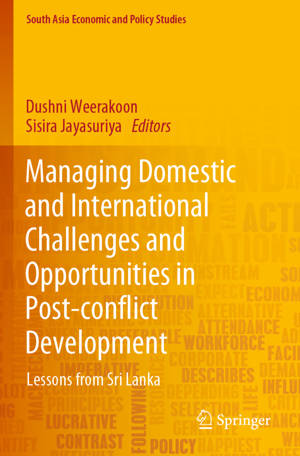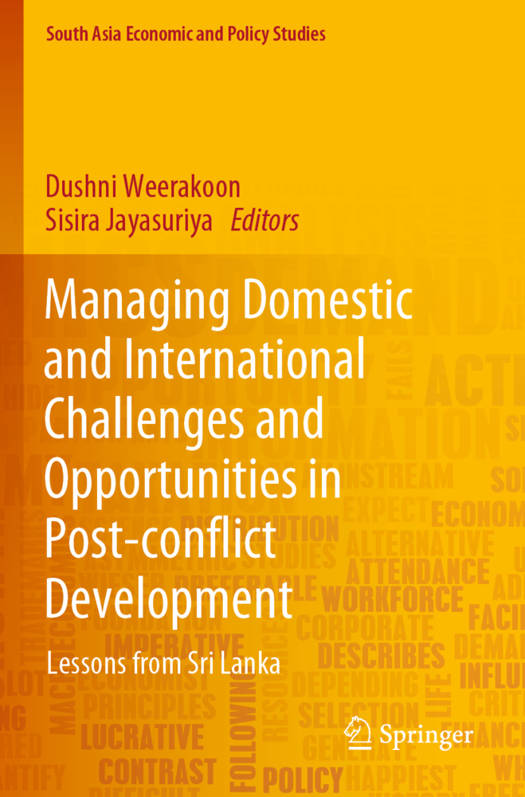
- Retrait gratuit dans votre magasin Club
- 7.000.000 titres dans notre catalogue
- Payer en toute sécurité
- Toujours un magasin près de chez vous
- Retrait gratuit dans votre magasin Club
- 7.000.000 titres dans notre catalogue
- Payer en toute sécurité
- Toujours un magasin près de chez vous
Managing Domestic and International Challenges and Opportunities in Post-Conflict Development
Lessons from Sri Lanka
Description
This book draws lessons from the story of Sri Lanka's post-conflict development in the context of a struggle for socio-political reconciliation, a turbulent world economy, and difficult internal and external political challenges. Heightened volatility in the global economy and intensifying geopolitical rivalries pose complex policy challenges for small countries embarking on post-conflict daunting challenges. To sustain peace, development needed to be broad based and inclusive. It needed to rapidly reconstruct war-devastated regions, restore macroeconomic stability, while delivering a 'peace dividend'. The book contains contributions that highlight Sri Lanka's endeavours of coping with adverse shocks, while exploiting new opportunities. It showcases how the island country had to attract capital and assistance, and support of the international community, including that of the rising Asian giants - China and India. Addressing the post-conflict challenges of sourcing development finance in a new global financial and political landscape, the book would be of interest to researchers working on post-conflict development in the context of a volatile global economy and changing aid architecture, and would also act as an important resource for policy makers.
Spécifications
Parties prenantes
- Editeur:
Contenu
- Nombre de pages :
- 273
- Langue:
- Anglais
- Collection :
Caractéristiques
- EAN:
- 9789811378102
- Date de parution :
- 18-09-20
- Format:
- Livre broché
- Format numérique:
- Trade paperback (VS)
- Dimensions :
- 156 mm x 234 mm
- Poids :
- 412 g






